Top Republican Mitch McConnell steps down – here’s why that’s good news for LGBTQ+ people
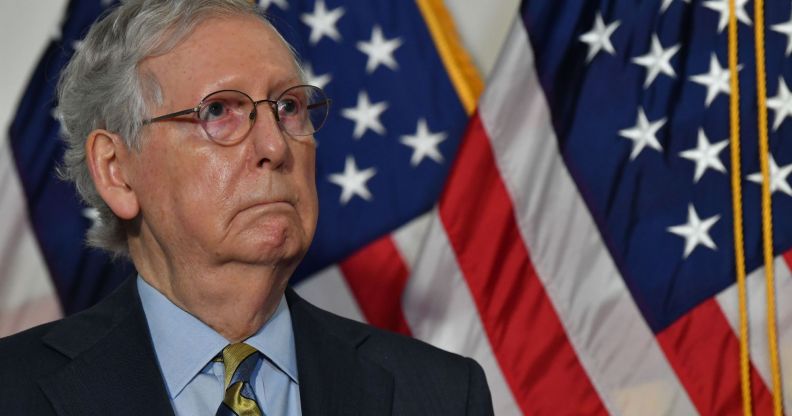
Mitch McConnell announced that he is stepping down as the longest-serving Senate Republican leader following the general election in November. (Getty)
Mitch McConnell, the US senate’s longest-serving Republican leader, is stepping down. It’s an end to his era on Capitol Hill, largely marked by opposition to LGBTQ+ rights.
The 82-year-old Kentucky lawmaker, who has served in the senate since 1985 and as the party’s leader since 2007, told the chamber on Wednesday (28 February) that he will not run for the position again in November’s party elections.
His tenure will end when a new congress convenes in January.
McConnell told fellow lawmakers that he’s “no longer the young man sitting in the back” of the senate. So, it’s “time to move on” and let the “next generation of leadership” step in.
“One of life’s most under-appreciated talents is to know when it’s time to move on to life’s next chapter,” he said. “So, I stand before you today… to say that this will be my last term as Republican leader of the senate.”
Here are some of the reasons that the vast majority of LGBTQ+ people won’t be sad to see him go.
McConnell consistently opposed same-sex marriage legislation
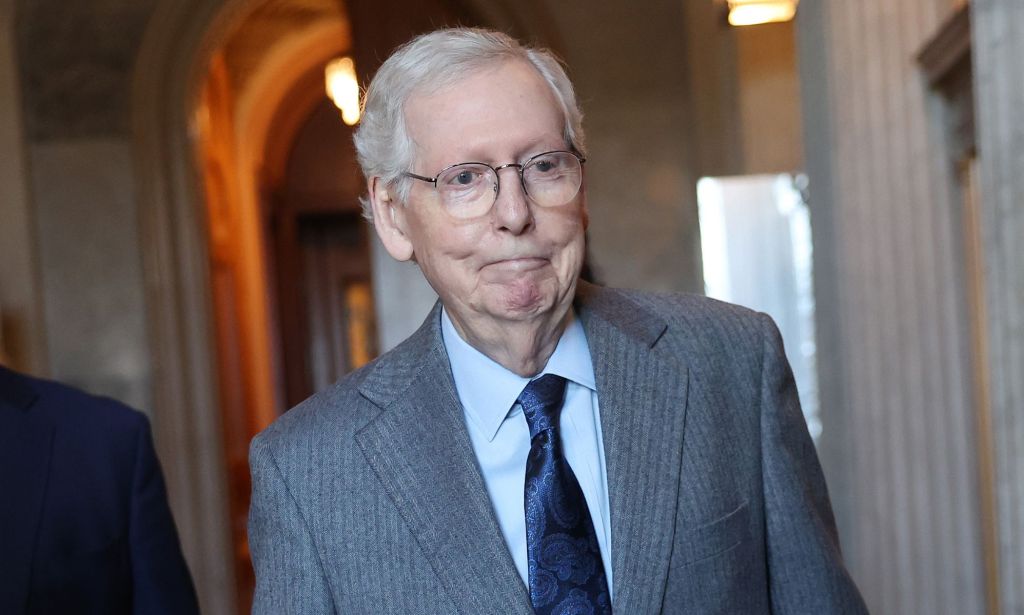
Throughout his career, McConnell was a staunch opponent of same-sex marriage.
He co-sponsored both the 2004 and 2006 versions of the Federal Marriage Amendment, which would have legally defined marriage as a union of one man and one woman, preventing a judicial extension of marriage rights to same-sex couples.
In 2015, he was one of just six Republican senators to sign an amicus brief urging the Supreme Court to reject marriage equality as it debated the case of Obergefell v Hodges. In the end, the court ruled that same-sex couples did have the right to marry – under the 14th amendment to the US constitution.
After the landmark ruling, McConnell stubbornly maintained his belief and is quoted as saying: “I believe that traditional marriage, the union between one man and one woman” is the cornerstone of our society and the best possible foundation for a family.”
Furthermore, he was among 36 senators who voted against the Respect for Marriage Act, which codified same-sex and interracial marriages into law, in 2022. Many pointed out that McConnell has been in an interracial marriage with Elaine Chao since 1993.
The new legislation aimed to repeal the much-maligned 1996 Defence of Marriage Act – which defined marriage as existing only between a man and a woman – and protect interracial marriages by mandating that states recognise marriages regardless of sex, race, ethnicity or national origin.
He repeatedly tried to stop the repeal of anti-LGBTQ+ policies in the US military
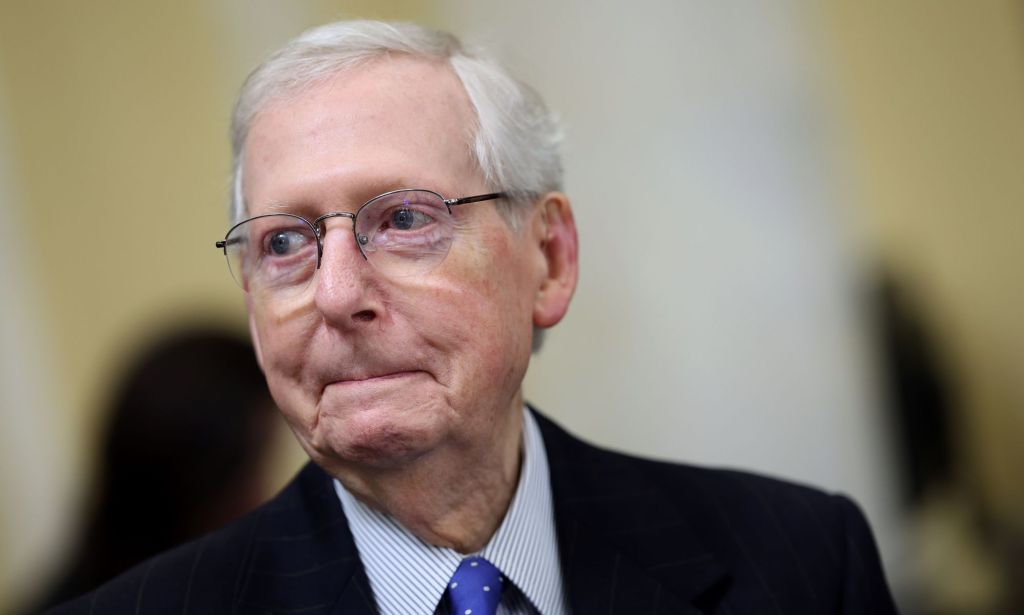
In 2010, McConnell voted against a defence bill that would have repealed the military’s “Don’t Ask, Don’t Tell” policy. He also tried to file an amendment to a sweeping bill that was likely to have prevented or delayed the repeal’s implementation.
The policy – introduced by president Bill Clinton in 1994 and eventually repealed in 2011 – meant LGBTQ+ people could serve as long as they did not disclose their sexuality. As a result, many queer service members faced discrimination, were forced out of the military and deprived of benefits.
Later in his career, and less than seven years ago, the senator blocked a vote on an amendment that would’ve reversed president Donald Trump’s trans military ban.
The Trump administration’s regulations barred transgender from troops serving in the nation’s military openly. The ban was overturned in 2021 by president Joe Biden, earning praise from LGBTQ+ activists, military personnel and veterans.
He was instrumental in appointing anti-LGBTQ+ and staunchly conservative nominees at all levels of US government
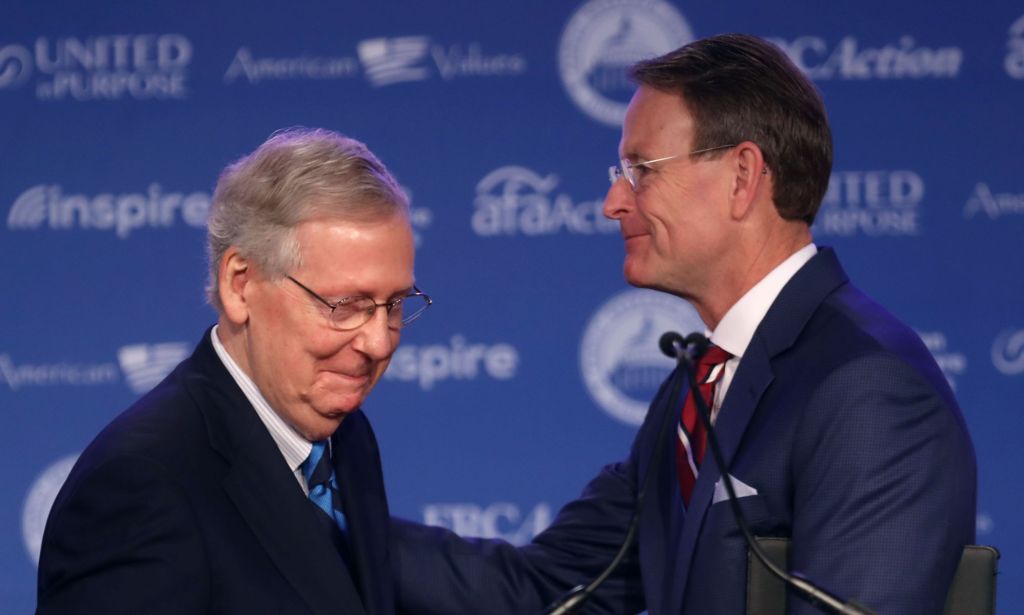
Under McConnell’s tenure, the senate helped Trump cement a 6-3 conservative majority on the Supreme Court, paving the way for the landmark ruling overturning the constitutional right to abortion.
In 2016, he was pivotal in preventing president Barack Obama filling a Supreme Court vacancy. Merrick Garland was never confirmed but in the following years, conservative judges Neil Gorsuch, Brett Kavanaugh and Amy Coney Barrett were elevated to the country’s top court by Trump.
Just last year, the justices ruled in favour of a Christian web designer who refused to create websites for same-sex couples.
The senate also confirmed more than 200 lower-court judges during McConnell’s leadership.
In 2018, he appointed Tony Perkins to the US Commission on International Religious Freedom, which is “dedicated to defending the universal right to freedom of religion or belief abroad”.
Perkins, who has a long history of attacking the LGBTQ+ community, is president of the Family Research Council (FRC).
The Southern Poverty Law Center listed the FRC as an anti-LGBTQ+ hate group in 2010, claiming that the organisation is infamous for making “false claims about the LGBTQ community based on discredited research and junk science”.
Mitch McConnell consistently voted against protections for LGBTQ+ people in the US
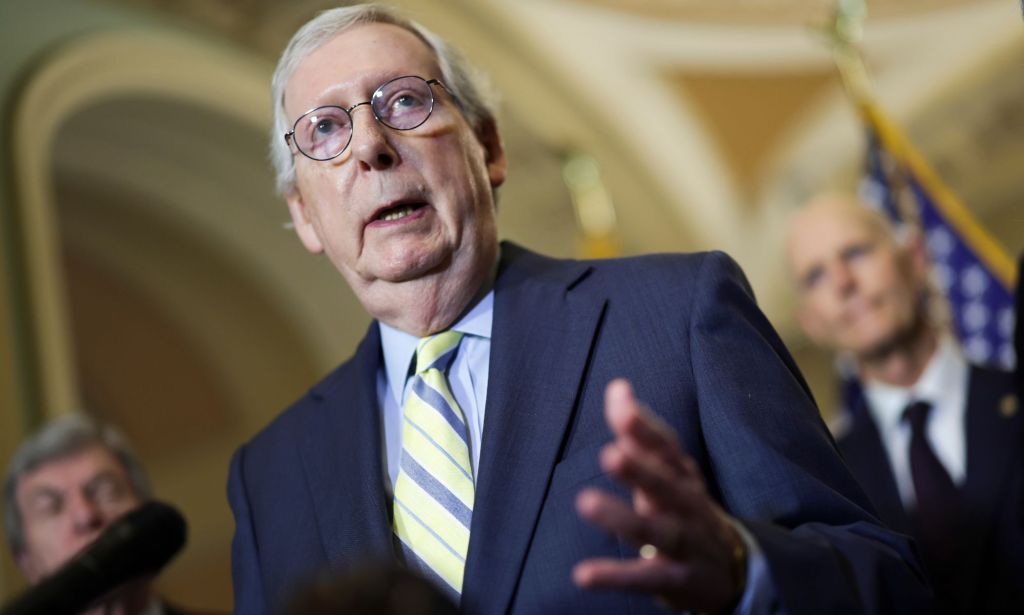
He voted against employment protections for queer federal workers and LGBTQ+-inclusive policies on hate crimes, as well as calling for the repeal of the Affordable Healthcare Act, known as Obamacare, thus threatening to strip people of vital access to medical care in the US.
He used his power as senate Republican leader to stall the Equality Act, which would provide explicit anti-discrimination protections for LGBTQ+ people across key areas of life.
The House of Representatives passed the Equality Act for the first time in 2019, but the bill stalled in the senate when McConnell refused to bring the proposed law to a vote. It was passed by the house in 2021 before being stalled in the senate once more.
Democrats reintroduced the Equality Act in congress once again in 2023.
How did this story make you feel?
